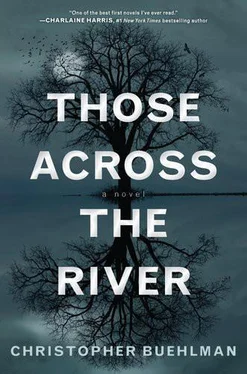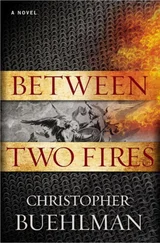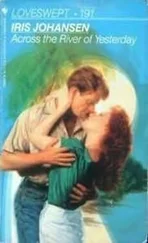“That’s fine,” Harvey said, and it was fine for a while until Harvey got thinking how no customers had come in the store and none were likely to with three rough-looking hobos taking up space, and one of them a darkie. Nobody passing on the street and looking in could think that they were going to smell very good up close, and the truth was they did not smell good. Harvey probably didn’t want to be a bad Christian, but I imagine he got thinking how even in the desert Jesus and the others managed to wash their feet and anoint their heads with oil, having no money and no real work besides preaching. Harvey stood there at about three o’clock with a look on his face like he was practicing in his head how he was going to say something like, “Sitting in the fan is fine, to a point,” or “Alright, I think if you ain’t ordering it’s time to move along,” when the black man noticed him thinking. He nudged the white man and the white man said, “Thank you,” in his bland way and the three of them went out. The screen door banged behind them and Harvey was left with only myself and his fan for company.
My own soda glass had been empty the whole time.
Lester Gordeau later told me the vagrants went from business to business in Whitbrow asking if anyone needed help sweeping up that night, or if anyone had a leaky roof that needed fixing, but they found no succor. Lester was working at the feed shop that day, and he told them how to get to Pastor Lyndon’s house, but then wondered if he had done the right thing. No telling with people like that. But then, what was a pastor for if you couldn’t send poor and downtrodden folks to him for at least a few kind words?
The dinner had not gone well, according to Sheriff Estel Blake (he of the potbelly and the good baseball arm) when he later regaled us with the story at the general store.
Sheriff Blake had buckled on his belt and .32, pinned on his badge and closed up the hardware store to track the hoboes down. It wasn’t hard. Estel found them sitting at dinner with the pastor, his daughter and his wife. It was a nice dinner, too, but it looked like the pastor had done without fried chicken so the strangers could have some.
The sheriff searched the woman’s rope and canvas bag and found the stolen dress.
“What are we gonna do about this?” he said.
“Might these brethren not at least finish their plates?” the pastor said.
“If they do it quickly, I suppose.”
So they gobbled down their food while the sheriff stood a little off from the table with his hat and the dress in one hand and the other hand not too far from his holster, which, he told Old Man Gordeau, he “discreetly unsnapped.” They ate like dogs, Estel said, the woman breaking a thigh bone with her back teeth and using a splinter to scrape the marrow out. When they finished, he took them outside where the butcher was waiting on the porch. The sheriff handed the dress to the butcher and said, “Do you want to press charges, Hal?”
“What do you reckon, Estel?”
“Any harm done, Hal?” the sheriff said.
Hal might have looked at the pastor, or maybe at the three vagrants in their homemade shoes and worn-out clothes, before he said, “No, I don’t reckon they’s any harm done. Long as they git.”
“Oh, they’ll git alright. Maybe they’ll even be good enough to say sorry, now that their bellies is full.”
The white man said, “We sorry.”
“What about you two? He sorry for all three of you?”
“We sorry, mister. Bad sorry,” the black man said without looking up.
Now the sheriff looked at the woman, who did not speak or meet his gaze. The white man said, “She’s Polish, from Poland. Don’t speak no English.”
“Shit,” said the butcher, “she could a paid me in keelbossy if I’d a knowed that.”
The sheriff laughed. He was glad not to have to drive to the jailhouse in Morgan, the small town half an hour in the opposite direction from the mill town. Besides, Estel was lower on the pecking order than the full-time boys in Morgan and they never let him forget it. A real bunch of blowhards.
“Alright,” the sheriff said loudly, just in case the woman really was Polish, “the man you took from says no harm’s done, and I say the same. But there’s goin to be harm done if you don’t move on down the line, and I mean tonight.”
The three of them started walking.
The pastor said, “These brethren were thinking of working for Miles Falmouth. Seeing as they are contrite and wish only for the means to have things honestly, I wonder would it do any harm to let them remain until we may speak to Brother Miles?”
They did not stop walking, but they slowed their pace to listen.
“Pastor, I know you’re all washed in the Blood and I try to be, too. But I done my good turn tonight. I don’t think you want these three to have the run of Miles’ house, him as weak as he is, and them the kind of people they already proved they are.”
“Sheriff, how would it sound if I let them to stay here the nights and work for Brother Miles by daylight?”
“I would say that you are a Godly man, but that my word is final. Miles is too sick to keep a watch on these, and him with just the young boy. And you know how he feels about the blacks.”
“Alright, then. God bless you, Mr. Blake. I’m sure the Lord will remember the kindness you have already shown,” the pastor said. And then he shouted, “And God bless you three. May you find the next doors open to you.”
If they heard, they made no sign.
DORA AND I arrived early at the town hall on the night Whitbrow met to discuss the Chase of Pigs and whether to continue it. Even though school was starting in another few days and the roads needed attention and the bank in the mill town would no longer loan Whitbrow money, the question of the pigs was the only issue on the docket. The meeting was to start shortly before dark, but the sun was still round and orange just above the houses when we got there.
The place was packed.
A wave of human warmth hit us when I opened the door to the beat-up old building, and it was clear we were going to have to spend the night standing. The whole room fluttered with the movement of makeshift fans. I spotted Pastor Lyndon standing on the far side of the room near his seated wife and daughter, looking unsure of what to do in a crowded room he was not in charge of.
God, the whole town had come.
It got worse.
By the time the meeting was officially begun, the doors had been stopped open so a growing crowd could listen in from the yard of the town hall. Some spread blankets. Those that brought chairs sat in these and smoked, and swatted at the mosquitoes that seemed intent on bleeding the whole town white.
“Lord-a-God,” one woman near me said, “took them a while to know we wasn’t in our homes, but they got our number now.”
“In defense of the Chase of Pigs,” Old Man Gordeau said as he opened the meeting in his capacity as mayor, “some would say we ought to keep it cause that’s the way we always done. But times is harder now than they have been since I was a young man, and I don’t rightly see the point in herdin good animals into the woods. Now, I didn’t like it when them government sons a bitches came and bought up our piglets in ’33 and killed em all. They cut babies out a sows and plugged the river up with dead ones. But I had to admit, that did raise the price of pork. The difference bein that they was doin it all over the country. We’re the only idiots doin it now, and nobody’s payin us a red cent.” Some in the room started to clap, but Gordeau waved them down. “Pastor Lyndon here is goin to tell us God wants it, an he knows better than me what God wants, at least s’far as scripture goes. But I don’t think God wants us to go hungry. And I don’t think God wants us to turn animals that don’t know how to fend for themselves out to die when they’s used to havin their corn give to them in a trough. That’s all. And, Reverend, I’ll start goin to church more.”
Читать дальше












